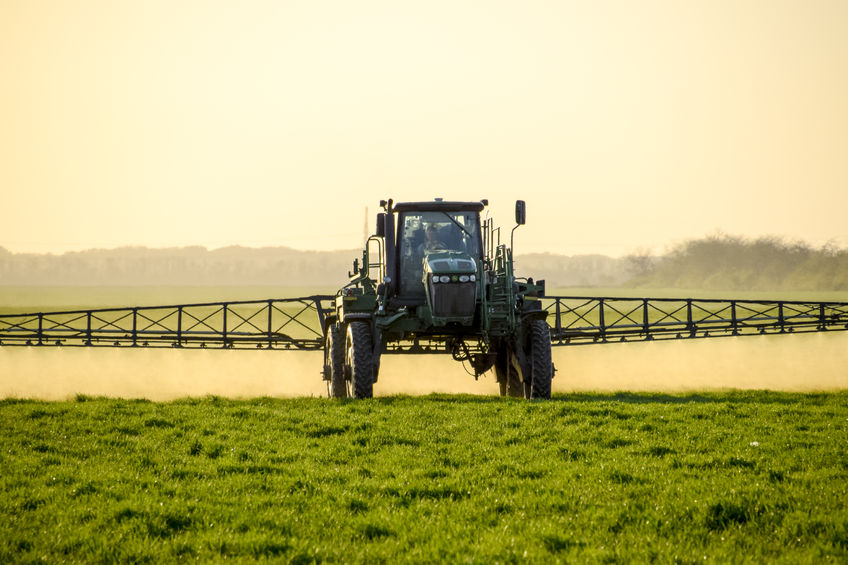
Red Tractor should strengthen its approach to pesticides so that farmers feel better supported to reduce their use, the Nature Friendly Farming Network has said.
Its new report, released today (15 March), highlights the scheme’s 'lack of targets' to reduce pesticide use and its 'failure' to require farmers to adopt alternative approaches.
The nature-friendly farm group says certified farmers should instead turn to Integrated Pest Management (IPM), crop rotations and biopesticides.
A Red Tractor spokesperson said that UK food already had lower levels of pesticide residues than imported products, and this "must be considered alongside the delivery of safe and affordable food".
However, the NFFN's report, supported by Pesticide Action Network UK and RSPB, says the assurance scheme is "missing an opportunity to provide a strong and coherent framework for addressing pesticide use".
As the UK’s largest farm and food assurance scheme, the NFFN argues Red Tractor can become "a key player in helping establish a system that is less heavily reliant on inputs while making a major contribution towards reducing pesticide reliance".
It also identifies how the assurance body can support farmers to demonstrate best practice to consumers, thereby enabling them to add value to their business.
The NFFN consulted farmers in a focus group and survey to identify what Red Tractor could do to help drive uptake of IPM, including via improved access to training, guidance and information.
It concludes that if the scheme’s IPM requirements were strengthened significantly it would "help to improve the diversity and resilience of farm ecosystems, and also drive positive change within farm businesses by reducing variable costs".
The report includes recommendations for Red Tractor to raise its IPM standards, including introducing goals or targets for reduction applied to the totality of pesticide usage on certified farms as a whole, rather than farm-level targets.
The NFFN says targets should also be flexible in response to changing weather and crop conditions.
Martin Lines, co-author of the report and chair of the NFFN, said: “There will always be a balance to strike between pesticide reduction and the quality and quantity of the crop produced.
"But Red Tractor has an opportunity to provide the right support and guidance in driving an uptake of IPM. This is more than achievable, but most importantly, incredibly necessary.
“If Red Tractor can demonstrate reduction in pesticide use and enable best practice in IPM, it could help facilitate a route to nature recovery and connect its certified farmers to consumers at a time when the public want greater clarity – and trust – in their food labels.
"By improving IPM uptake, Red Tractor can help its farmers demonstrate world-leading environmental delivery and give a competitive advantage in a changing marketplace.”
Responding to the report, a Red Tractor spokesperson said: “Red Tractor's voluntary scheme is the bedrock of progressive farming in Britain – assuring food that is responsibly produced.
“The UK is one of the most regulated markets. Our standards align with Defra’s National Action Plan for Pesticides and aim to meet IPM expectations linked to the Sustainable Farming Incentive.
“Where farms are asked to go further, a clear rationale is needed, especially given increasing competition from imports.
"UK fresh produce already has lower levels of pesticide residues than imported products and this must be considered alongside the delivery of safe, affordable food.”
What are the report's recommendations?
The report authors say they are keen to work with Red Tractor to implement their set of recommendations included in the report.
Headline recommendations for the assurance body include:
• Establish and monitor targets to reduce the total amount of pesticides used by Red Tractor certified farmers.
• Prohibit the use of the most harmful pesticides and require farmers to select non-chemical alternatives when available.
• Adapt the requirements of its standard to include a specific focus on pesticide use and hazard reduction, and place more emphasis on preventative and non-chemical methods for managing pests, diseases and weeds.
• Introduce measures designed to support farmers to make continuous improvements on reducing pesticide use and adopting non-chemical approaches.
